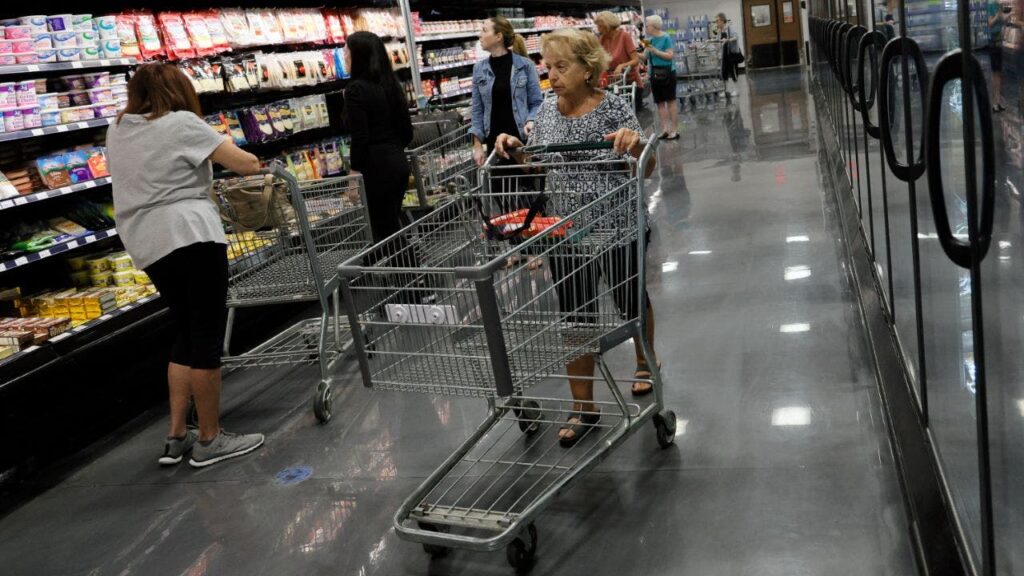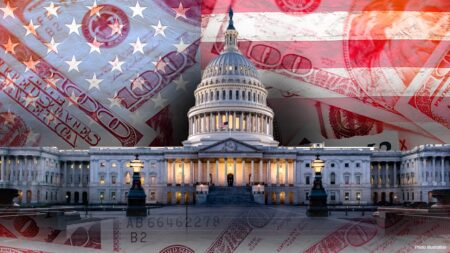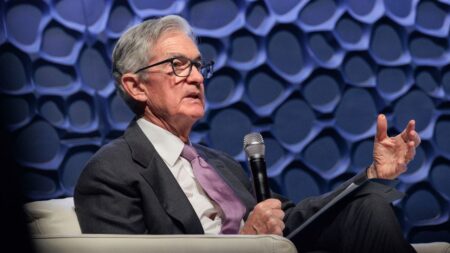Consumer confidence tumbled in September, marking the sharpest drop in more than three years as Americans grow increasingly concerned about economic conditions – particularly the labor market.
The Conference Board reported Tuesday that its Consumer Confidence Index fell this month to 98.7, down from an upwardly revised August reading of 105.6.
“September’s decline was the largest since August 2021 and all five components of the Index deteriorated,” Conference Board chief economist Dana Peterson said. “Consumers’ assessments of current business conditions turned negative while views of the current labor market situation softened further.”
“Consumers were also more pessimistic about future labor market conditions and less positive about future business conditions and future income,” Peterson added.
POWELL IS WORRIED ABOUT THE LABOR MARKET: NANCY LAZAR
The Present Situation Index, which gauges consumers’ current assessment of the business and labor market, plummeted more than 10 points to 124.3 this month, while the Expectations Index, based on respondents’ short-term outlook, declined 4.6 points to 81.7.
The Conference Board noted that when the Expectations Index falls below a reading of 80, it typically signals a recession is ahead.
Consumers’ current view of business conditions also turned negative this month, the report showed. At the same time, respondents’ assessments of the labor market deteriorated.
FED’S POWELL: POLICYMAKERS NOTED ‘ARTIFICIALLY HIGH’ JOBS DATA, REVISIONS IN RATE CUT DECISION
Despite inflation easing in August to the lowest level in three years, consumers’ average 12-month inflation expectations climbed to 5.2% this month, and the Conference Board reported that respondents’ write-in comments were dominated by mentions of inflation and prices.

“The deterioration across the Index’s main components likely reflected consumers concerns about the labor market and reactions to fewer hours, slower payroll increases, fewer job openings—even if the labor market remains quite healthy, with low unemployment, few layoffs and elevated wages,” Peterson said.
“The proportion of consumers anticipating a recession over the next 12 months remained low but there was a slight uptick in the percentage of consumers believing the economy was already in recession.”
Read the full article here











